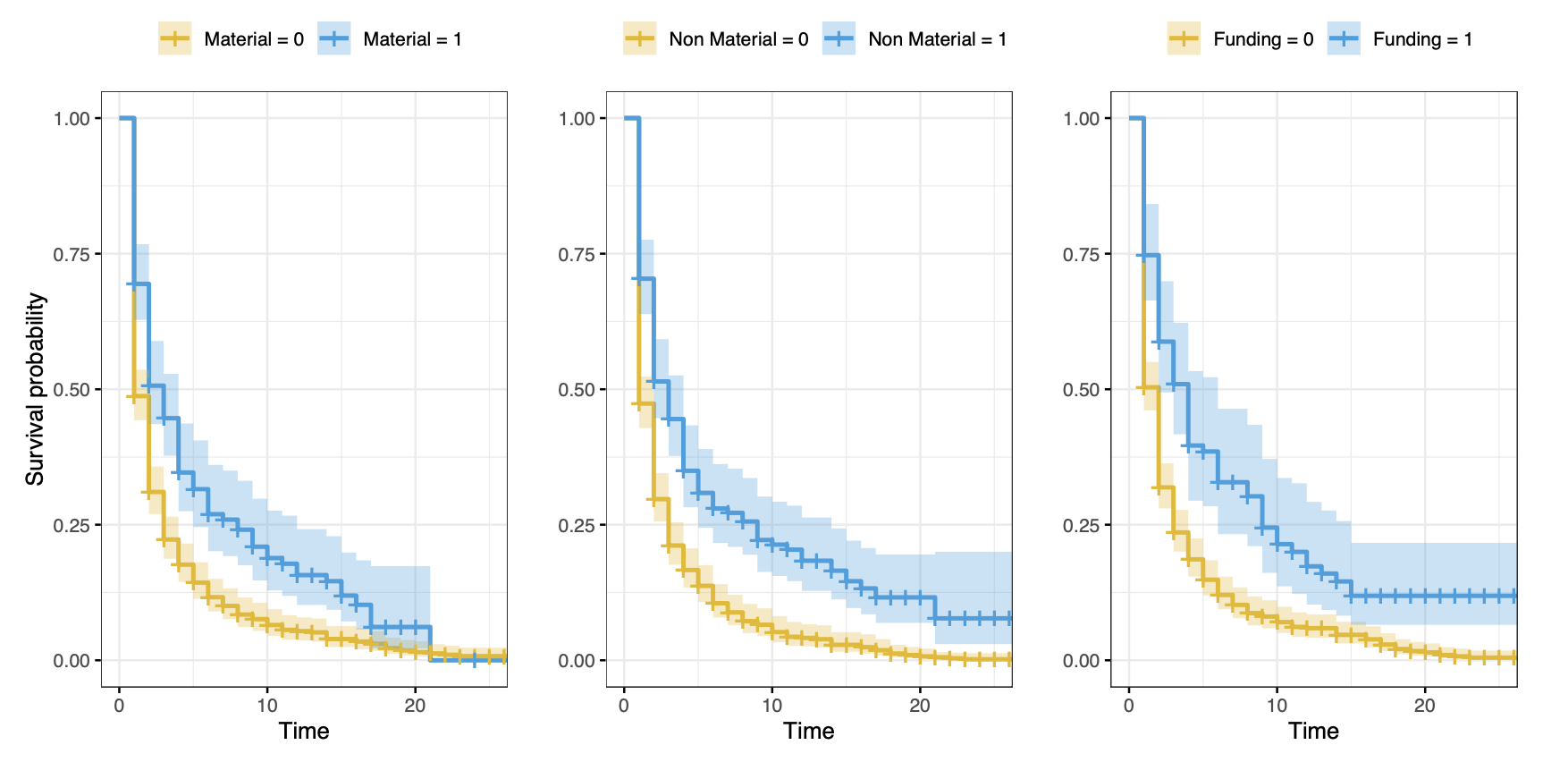Determining Duration
How Types of External Support Shape Civil Conflicts

This paper examines how different types of state external support—material, non-material, and funding—affect the duration of civil conflicts by focusing on commitment problems and the costs and benefits to state sponsors. It categorizes external support based on consumability, transfer requirements, and observability, and explores how these characteristics shape the decision-making of state patrons, governments, and rebels. I argue that these attributes influence the costs and benefits of intervention and commitment problems, thereby affecting conflict duration. Since non-material support and funding impose a lesser burden on state patrons while exacerbates commitment problems, I contend that conflicts involving rebels with these types of support are likely to last longer than those with material support. Using the UCDP External Support Dataset and a Cox Proportional Hazards model, this paper empirically tests these theoretical expectations, concluding that non-material support and funding exert more leverage in prolonging civil conflicts compared to material support. The results provide insights into how third-party interventions, driven by the varied interests and strategic objectives of external state sponsors, shape the duration of civil conflicts.